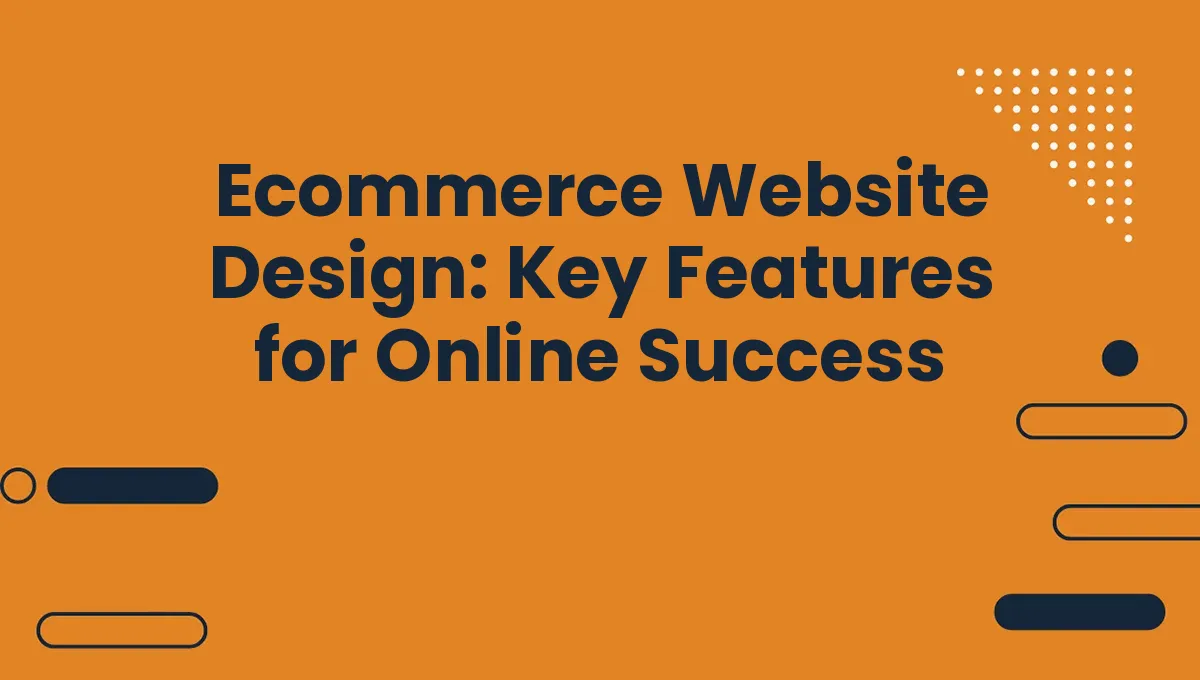In the ever-evolving landscape of digital commerce, the design of yoru eCommerce website plays a pivotal role in determining the success of your online business.A well-crafted online store is more than just a virtual storefront; it’s a dynamic experience that attracts, engages, and converts visitors into loyal customers. At Cham Agency, we understand that an effective eCommerce website seamlessly integrates aesthetic appeal with functional design to create an intuitive shopping experience. In this article, we will explore the key features that can elevate your eCommerce website, ensuring it stands out in a crowded marketplace. Whether you are launching a new venture or seeking to optimize an existing platform,these insights will guide you towards building an online presence that not only captivates but also drives sales. Join us as we delve into the essential elements that can turn your website into a compelling destination for customers.
Captivating Aesthetics: Designing an Engaging User experience
In the realm of ecommerce, the visual appeal of your website can significantly influence customer behavior and decisions. A well-designed site should seamlessly blend aesthetics with function, creating a memorable experience that keeps users engaged. Bold colors, attractive typography, and high-quality images can capture attention, but it’s the harmony of these elements that truly enchants visitors. When crafting your online platform, consider these essential aesthetic principles:
- Consistent Branding: Maintain a cohesive look that reflects your brand identity.
- Intuitive Navigation: Design simple and clear menus to enhance usability.
- Responsive Design: Ensure your site is visually appealing across all devices.
- Whitespace Utilization: Use white space effectively to create a breathable layout.
moreover, combining aesthetics with a strategic layout can guide users through a journey from discovery to action. Use visual hierarchies, such as contrasting colors for call-to-action buttons, to draw the eye and motivate engagement.An effective approach is to implement dynamic elements such as sliders or interactive features, which not only enhance visual engagement but also keep the user’s interest alive. Below is a brief overview of impactful design elements you might consider:
| Design Element | Impact |
|---|---|
| Color Schemes | Evokes emotions and directs attention. |
| High-Quality Imagery | Boosts credibility and attracts customers. |
| Typography | Affects readability and brand voice. |
| Visual Cues | Guides users through the purchase funnel. |
Seamless Navigation: The Backbone of User-Friendly Ecommerce
A well-structured navigation system is essential for any ecommerce platform, acting as a guiding map for users as they explore products and services. When customers can easily find what they are looking for, their shopping experience is enhanced, leading to increased satisfaction and higher conversion rates. Incorporating intuitive menus, search functionalities, and filter options allows users to navigate your site effortlessly. Consider the importance of mobile optimization as well; with a notable number of shoppers using their smartphones, ensuring that your navigation is responsive and user-friendly on all devices is vital.
To further streamline the navigation process, implementing breadcrumb trails can provide users with context about their location within your site, making it easier to backtrack if needed. Additionally, consider creating a clear and appealing footer menu that enhances user experience by providing quick access to essential pages such as shipping policies, return facts, and customer service links. The combination of these features can greatly minimize the time users spend searching for information, allowing them to focus on what really matters: making a purchase.
| Key Navigation Features | Benefits |
|---|---|
| Intuitive Menus | Improved user flow and product discovery |
| Search Functionality | Quick access to specific items |
| Filter Options | Refined search results tailored to user preferences |
| Responsive design | Seamless experience across devices |
mobile Optimization: adapting Your design for On-the-Go Shoppers
in today’s rapidly evolving digital landscape, ensuring that your ecommerce website is tailored for mobile users is not just an option-it’s essential. As on-the-go shoppers increasingly rely on their smartphones and tablets, a responsive design that adapts seamlessly to varying screen sizes and resolutions is crucial for providing an engaging user experience. Consider implementing features such as finger-friendly navigation, minimalistic design elements, and rapid loading speeds to cater to this demographic. Remember, a clutter-free layout will not only enhance aesthetics but will also guide users toward making purchases effortlessly.
In addition to responsive design, optimizing mobile checkout processes can significantly impact conversion rates. Simplifying forms, enabling guest checkouts, and incorporating mobile payment options like Apple Pay or Google Wallet are effective strategies that can reduce friction during the purchase journey. It’s also crucial to keep essential features visible, such as search bars and contact information, so users can easily access them without excessive scrolling. By prioritizing these elements, not only will you improve usability but also boost customer satisfaction, ultimately driving sales and loyalty.
Trust Signals: building Credibility Through Design Elements
Trust signals are crucial in establishing a solid foundation for your ecommerce website. These design elements not only enhance the visual appeal but also convey reliability and professionalism to potential customers. Incorporating trust badges, such as SSL certificates and payment method icons, prominently on your site can significantly increase consumer confidence. Other effective signals include customer testimonials and case studies, which can be presented in an engaging format, showcasing real user experiences that resonate with potential buyers.
Additionally, the placement and styling of these elements play a vital role.Consider using contrasting colors and clear typography to make trust signals stand out,ensuring they catch the eye of visitors. You might also explore the use of a dedicated section in your site’s footer or header where you can feature a simple table to summarize your credibility factors. Here’s an example of how you can structure it:
| Trust Signal | Description |
| SSL Secure Payment | Protects user data during transactions. |
| Money-Back Guarantee | Assures customers of hassle-free returns. |
| Verified Customer Reviews | Showcases authentic feedback from users. |
| Social Media Presence | Demonstrates ongoing customer engagement. |
To Conclude
In the ever-evolving landscape of e-commerce, a well-designed website is more than just a virtual storefront; it serves as the heartbeat of your online business. As we’ve explored throughout this article, the key features of effective e-commerce website design-ranging from user-friendly navigation to responsive layouts, secure payment gateways, and engaging product displays-are crucial elements that can significantly influence customer experience and drive conversions.
As you embark on your journey to craft or refine your e-commerce website, remember that each detail counts. Balancing aesthetics with functionality will not only enhance user satisfaction but also build trust and loyalty among your customers. In a digital world brimming with competition, investing time and resources into these essential design elements can set you apart and steer your online venture towards lasting success.
So, take these insights to heart and transform your vision into reality. The online marketplace is vast, and with the right tools and strategies at your disposal, the possibilities are limitless. Here’s to your e-commerce success-may your website shine brightly in a sea of options, captivating visitors and turning them into loyal patrons.









